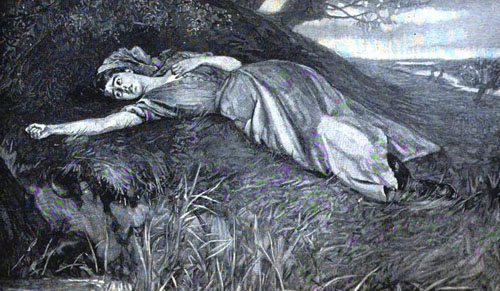Sadistic Feminism
March 14th, 2011

I have now read two novels by Thomas Hardy, and am convinced that, within the confines of accepted thought of his time, he was a rampant feminist. I may change my tune when I’ve had time and inclination to read further into his novels, but so far, both Bathsheba and Tess strike me as powerful advocates for their sex. M’hap not so much on their personal merits — the one a self-centered brat, the other an emotional simpleton — but as examples of the senseless harms perpetrated on the weaker sex by an unsympathetically masculine world.
In Tess of the d’Urbervilles particularly, one finds very little patience with any of the male characters. The stories of the women, from Tess and her relations, to the girls she labored with at the dairy and later the starve-acre farm, are all finely drawn and their trials wrought with such pathos as to tug at the heart of even the most chauvinistic reader. On the other side, we have only her shiftless father, lascivious “cousin,” and starry-eyed stripling of a husband. The sin that Tess must absolve with heart’s blood is caused by one man and shunned by another, and her ultimate punishment is exacted by a society founded on the prejudices of men.
Rather than rail at his readers, Hardy takes the subtle approach of engaging our sympathy. He presents the case without argument, trusting in the intelligence of some at least to make the leap. Or do I read too much into his fine storytelling? He could have simply written what he saw, and it is only my post-feminist sensibility that perceives any preference in the narrative.
I suppose I should first enlarge my base from which to pursue such conjecture by reading more of Hardy’s works. But I simply cannot undertake such just at present. Two in a row is more than anyone should have to take. Suffering is as suffering does. After finishing Tess yesterday, I was tempted to pick up Sons and Lovers, but forbore even that much and chose North and South by Mrs. Gaskell instead.
